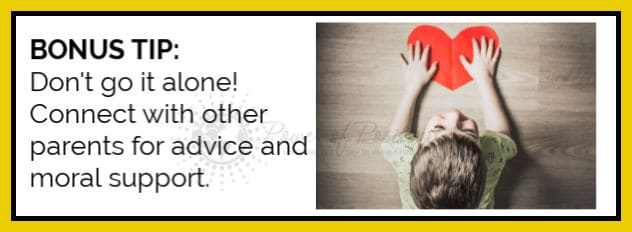Understanding what is happening to your child may be a little tricky when they show behaviors you don’t fully comprehend. Unfortunately, if the problem is autism, an explanation of those behaviors may also be confusing. Learning more about the disorder (aka the autism spectrum) or understanding the symptoms of it may enable your child to get a diagnosis and professional help for the autistic child sooner.
Statistics reveal that the frequency of autism cases is on the rise. According to Autismspeaks.org, 1 in every 59 children will be born with the disorder. This is twice as many as were born in 2004. Boys are four times more likely to have it than girls, with a ratio of 1 in 37 boys and 1 in 151 girls. Autism occurs among all racial and socioeconomic groups.
Although genetics is believed to be the cause of autism, the National Alliance on Mental Illness (NAMI) is now studying possible environmental causes to determine its impact on the child in the womb. Several environmental factors may play a part in the development of the spectrum. The mother’s health is known to affect the health and development of the fetus.
Diagnosing Autism
Autism is not difficult to diagnose. Although there is no medical test for it, children as young as two can accurately get a correct diagnosis. A common factor is that a little more than half of the children with the disorder will have a low IQ, but about 44 percent of them will be average or even above average – which is greater than 85.
Getting a correct diagnosis will involve a team of specialists. Brain development is also noticeably different in terms of structures and connections, and it can be observed in infants as young as six months. Symptoms often arise before a child is two years old. However, most doctors won’t issue a diagnosis until after a child is four years old.
The Range of Autism
10 Autistic Behaviors to Watch for
1. Impaired Social Interaction
Children with autism cannot interact with other children or even with people in general. It is the key symptom of the autism spectrum. One of the first things that may be noticed is that they will not respond when their name is called, and they will avoid eye contact. They do not understand changes in the tone of another person’s voice or the meaning of facial cues. This is partly caused by the fact that they never look at other peoples’ faces to catch those facial cues, says the National Human Genome Research Institute.
2. Limited Speech Capabilities
Spoken language is an area in which a child with autism will likely be delayed. They have difficulty with communication when they do start talking and will often be awkward in their responses. In some cases, they may have a vast vocabulary, but may not answer a question with an expected answer – and it may not even be related at all to the topic. The National Institutes of Health say that an average child should be babbling by the time they reach their first year. They should also be speaking words before that time, but if they are not using any words by 16 months or two-word phrases by their second year, you need to seek an expert for diagnosis.
They may also repeat phrases, or speak in a monotone voice like a robot or have a sing-song voice. It is also possible that after they learn some new language and communication skills that these become lost later.
3. Reduced Ability to Make Friends
One study conducted by PLOS discovered that when autistic children are raised with animals that their social skills improve. The animals helped the children even to develop the ability to smile and laugh, have some facial expressions, as well as decreasing behaviors that are less acceptable. In the study, it was also observed that the children even expressed care for the animals, which included cuddling, hugging, comforting, and nuzzling. Having an animal in public was also found to create social interactions.
4. Sensory Sensitivity
Children with autism may tend to overreact or underreact to various stimuli of their senses. While they may completely ignore some sounds, such as people speaking to them, other sounds may obviously disturb them. This can lead to them covering their ears or making various noises to attempt to drown out the sound. Their sense of touch may also be extra sensitive, causing them to pull away at the touch of a particular type of fabric or a pat on the back. This same effect may also occur when other types of sudden or unusual sensory input are received. This can include smells, lights, textures, tastes, and even colors.
5. Unusual Body Movements
6. Struggle to Understand or Express Emotions
7. Repeats Words or Phrases
8. Detail Oriented
9. Focused on Parts of Objects
10. Need a Routine to Survive
Other Behaviors
May Have Epilepsy
Girls May Have Different Symptoms
In an article by Scientific American, researchers have discovered that many girls with autism spectrum have likely been overlooked. This is because the original test models were all boys. Doctors now believe that girls have some different symptoms. Unfortunately, it still needs to be determined on how to diagnose a girl with them. Girls know how to mask some of their symptoms better.
In other situations, girls tend to display different interests. Boys, for example, may not care at all whether they have any kind of social interaction. They often are happily playing by themselves in their little world. Girls, however, express a stronger interest in friendships and acceptance. This can lead them to want to learn how to be socially acceptable, and they may work harder at it, causing parents and others not to notice.
Final Thoughts: Medical Treatment of Autistic People
Treatment for autism can include a wide range of methods, depending on the severity and age of the individual. Children with autism can often become more controlling of their symptoms, and they may become less noticeable. At present, there is no cure for it, and current medicines do not treat the primary symptoms. Doctors may order medications to help with some of the more severe symptoms. Those can treat depression, anxiety, and obsessive-compulsive disorder. Treatments can make a difference in the lives of people who are autistic – children and adults. By seeking an accurate diagnosis when unusual behavior is first noticed, it can improve the quality of their lives, as well as that of their parents and others who interact with them.


















